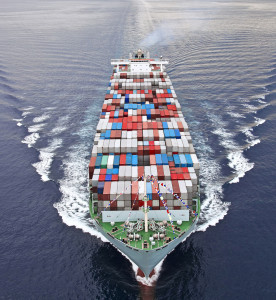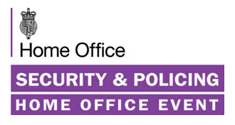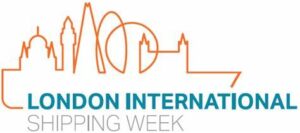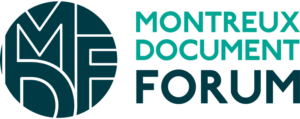The Security in Complex Environments Group (SCEG) is a Special Interest Group, for risk and security companies committed to the development and implementation of international standards for the private security and crisis management sector.
SCEG companies are well regulated and compliant: embracing international security standards and protecting human rights is at the core of their business.
SCEG provides a voice and a catalyst for change for those companies concerned about the need to raise global standards for the private security and crisis management sector. It also seeks to broaden the involvement of its membership in work overseas and at home and signpost business opportunities for the members. It has strong links to UK government departments including those involved in trade and commerce.
The SCEG is governed by an Executive Committee representing the broad spectrum of interests within the membership. The Group welcomes membership applications from security and crisis management companies who are compliant, recognise the importance of standards, and wish to contribute to the raising of global standards.
Please contact Director SCEG, Paul Gibson at paul.gibson@adsgroup.org for more details.
MEMBERS OF SCEG
The SCEG membership is truly international reflecting the global nature of private security. Most of the UK companies delivering security and safe outcomes in challenging and complex environments on land and at sea are members of SCEG. Members represent the spectrum of companies operating in this specialist sector from large multinational to small and medium enterprises and range from those whose core business is to deliver armed security in complex environments, to SCEG members who are training and specialist providers to the industry.
There is a growing and welcome number of SCEG members drawn from outside the UK. By joining, all SCEG members have demonstrated a willingness to embrace regulation, transparency and professional standards. The legal and insurance sectors are well represented within SCEG with lawyers, insurance brokers and underwriters enjoying Associate Membership.

ENGAGEMENT WITH THE UK GOVERNMENT
SCEG engages across government departments on a sustained basis on a range of issues pertinent to the industry, providing a direct route for the membership to government. Appropriate UK Government departments and other stakeholders including non-governmental organisations are granted ‘Affiliate’ status, at the discretion of the Executive Committee. Representatives from Government Departments have a standing invitation to attend SCEG meetings when items of relevance are on the agenda.
SCEG TERMS OF REFERENCE
The SCEG Terms of Reference can be downloaded below.
SCEG COMMITTEES AND WORKING GROUPS
The SCEG Main Meeting and Executive Committee meetings are held quarterly on Teams or at ADS in Salamanca Square or at another London venue. In addition, SCEG establishes working groups to provide expert support and advice to Members; discuss technical issues of mutual interest across industry; provide a forum for government engagement with the private risk and security sector; and capture views to represent to governments. Working Groups are established by the Executive Committee to meet the requirements of the membership.
SCEG OUTREACH
During the course of each year SCEG members are actively involved in a number of high profile security events in the UK Including:
Security and Policing

Security and Policing, the official UK Government global security event held annually in Farnborough and hosted by the Home Office’s Joint Security and Resilience Centre (JSaRC). Security & Policing offers a world-class opportunity to meet and discuss the latest advances in delivering national security and resilience with leading UK suppliers, UK and overseas Government officials and senior decision makers across the law enforcement and security sectors.
International Security Expo

International Security Expo in Olympia, London is the go-to event for those working at the highest-level of the global security industry. Thousands of high-level professionals responsible for the security of people, places and critical infrastructure as well as homeland security and international security. A SCEG Pavilion adjacent to the Government Zone has proved to be a popular feature of the Expo for several years enabling SCEG members to exhibit and benefit from a significant footfall.
London International Shipping Week

The London International Shipping Week is one of the most important global shipping and maritime events in the world. Thousands of international industry decision makers attend hundreds of official events during the week. SCEG has a vibrant maritime security sector and those members leverage the opportunities provided by this important week in the maritime calendar.
SCEG Cross Brief
The SCEG Cross Brief is the last event in the SCEG calendar and is held in a prestigious central London location. The event provides a platform for members to share best practices and lessons learnt from security operations across the globe. Several government officials attend each year.
THE EVOLUTION OF STANDARDS
THE MONTREUX DOCUMENT ON PRIVATE MILITARY AND SECURITY COMPANIES

The Montreux Document reaffirms the existing obligations of States under international law, in particular international humanitarian law (IHL) and human rights law, relating to the activities of private military and security companies (PMSCs).
Resulting from a joint initiative launched by Switzerland and the International Committee of the Red Cross (ICRC), the Montreux Document was finalised in 2008. The Document seeks to provide guidance on the basis of existing international law, but is not a legally binding treaty. To become Montreux Document Participants, States and International Organisations merely need to communicate their support for the Montreux Document to the Swiss Federal Department of Foreign Affairs.
The Montreux Document provides a blueprint for governments to effectively regulate PMSCs. It highlights the responsibilities of three principal types of states: Contracting states (countries that hire PMSCs), Territorial states (countries on whose territory PMSCs operate), and Home states (countries in which PMSCs are headquartered or based). Furthermore, the good practices may be useful for other actors such as international organisations, civil society, companies that contract PSMCs, and PMSCs themselves. While Part one of the Document recalls the pertinent legal obligations of States regarding PMSCs, Part two contains a description of good practices which aim to provide guidance and assistance to States in regulating PMSCs. The good practices include determining which services may or may not be contracted out to PMSCs, requiring appropriate training, establishing terms for granting licenses, and adopting measures to improve supervision, transparency and accountability of PMSCs.
Although the Document was developed with the view that PMSCs operate in situations of armed conflict, it may also be instructive for post-conflict situations and for other, comparable situations. Furthermore, most of its good practices are ideally put in place during peacetime.
 |
 |
INTERNATIONAL CODE OF CONDUCT FOR PRIVATE SECURITY PROVIDERS
Building on the Montreux Document (2008), the International Code of Conduct for Private Security Providers (ICOC) see http://www.icoc-psp.org/) of November 2010 sets out a body of principles derived from human rights and international humanitarian law to govern the operations of private security services providers in terms of their own management and as regards their responsibilities towards those who might be impacted by their activities. It was developed in a multi stakeholder process to clarify the standards required of private security companies operating in complex environments as well as to improve oversight and accountability of these companies. Apart from human rights principles. The Code includes specific commitments on the management and governance of companies, including how they vet personnel and sub-contractors, manage weapons, procedures governing the use of force and grievance procedures. All SCEG members are required to read and agree to abide by the principles in the Code.
The ICOC also acts as a founding instrument for a broader initiative to create better governance, compliance and accountability -provision was made under Article 7a for the establishment of objective and measurable standards based on the Code with the objective of realising common and internationally recognised operational and business practice standards. This was given effect by the negotiation of the American national standard known as PSC1 “Management System for Quality of Private Security Company Operations-Requirements with Guidance” finalised in 2012 (see http://www.acq.osd.mil/log/PS/psc)
LAND STANDARD – PSC1/ISO18788
The US Department of Defence commissioned the security trade association, ASIS, to develop an American National Standard for land-based Private Security Companies. This standard, known as PSC1, has a core element of human rights and was framed in such a way that it could be adopted by other nations for use internationally. PSC1 was developed after an extensive consultation process which was strongly supported by the SCEG. PSC1 and the associated conformity standard, PSC2, were published in early 2012 and SCEGs unreserved recommendation to the UK Government was that PSC1 be accepted as the basis for our UK national standard, with the additional requirement for independent 3rd party certification, and provision for any UK specific conditions. On the 17th December 2013 a Written Ministerial Statement was issued by the UK Government advising of their intention to specify PSC1 as the UK standard and supporting it’s adoption by ISO as an international standard. The Written Ministerial Statement dated 17th December 2013 can be downloaded below.
The PSC1 standard was submitted to ISO (International Standards Organisation) and after lengthy negotiation it was developed into ISO 18788 Standard “Management system for private security operations – requirements with guidance”. It was published as a full ISO in the summer of 2015.
MARITIME STANDARD – ISO 28007
In recognition of the increasing threat of piracy in the Indian Ocean, discussions between the International Maritime Organisation (IMO) and ISO began in earnest in January 2012 to decide how best to develop an international standard for armed security guards on ships in the High Risk Area. Four months later IMO’s Maritime Safety Committee approved MSC Circular 1443 – Interim Guidance to Private Maritime Security Companies providing Privately Contracted Armed Security Personnel on board Ships in the High Risk Area. It was also concluded that ISO should develop an international standard drawing on 1443, which itself had been informed by work completed earlier by the SCEG. The standard was to be known as ISO 28007 and to be completed as a matter of urgency.
The ISO 28007 Technical Committee included a SCEG Executive Committee member as the UK’s nominated representative. As part of the development of the ISO, meetings were held in Lyon and Brussels to hear what interested stakeholders wanted to see in the Standard. In parallel a UK Mirror Committee, hosted within BSI and led by a member of the SCEG’s Maritime Security Working Group, provided input to the ISO’s development. Many of the SCEG’s maritime security members were instrumental in the development of the ISO Publicly Available Specification (PAS) which was subsequently submitted to the IMO in November 2012. The publication of the ISO/PAS in December 2012 was a significant milestone and recognised by the UK government as an important contributor to the promotion of high professional standards amongst maritime security providers. The standard was published as full ISO standard in March 2015. (See this LINK).
In June 2015 IMO formally endorsed ISO 28007 in Flag State guidance.
ACCREDITED CERTIFICATION / INTERNATIONAL CODE OF CONDUCT ASSOCIATION

These two auditable standards provide the means for private security companies and private maritime security companies to be audited against the way in which their processes and management systems have given effect to international and national obligations, laws and regulations as well voluntary commitments they have accepted through accredited certification by Accredited Certification Bodies.
After a rigorous process of pilot assessments during 2014, the UK Accreditation Service accredited two certification bodies to offer accredited certification to PSCs for PSC1 and three certification bodies to offer accredited certification to PMSCs for ISO PAS 28007. Details are in the link, including a list of the companies who have successfully achieved and maintained certification under these instruments (Accredited Certification for PSC1 / ISO 28007) / http://www.icoca.ch/ )
Last updated February 2025

